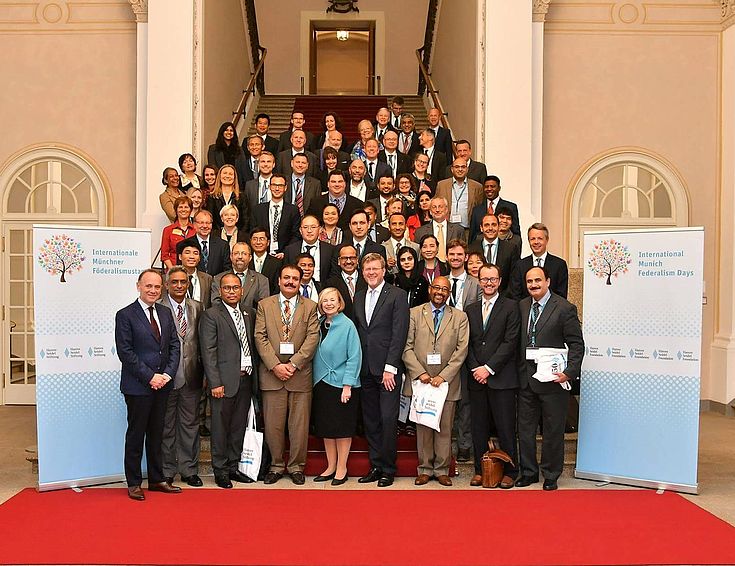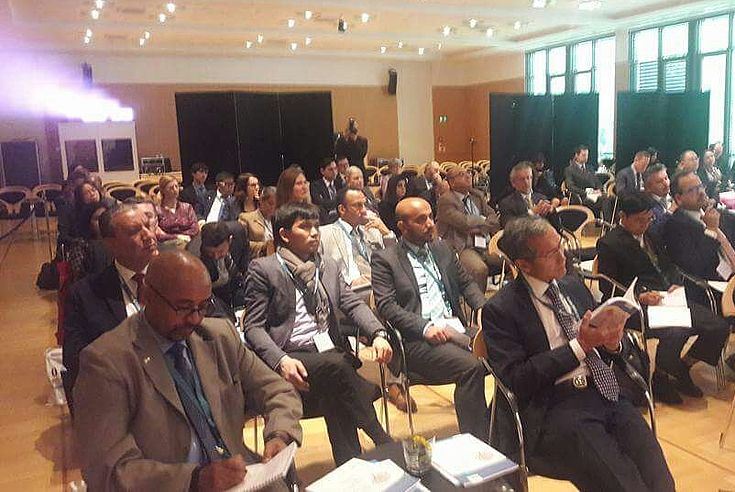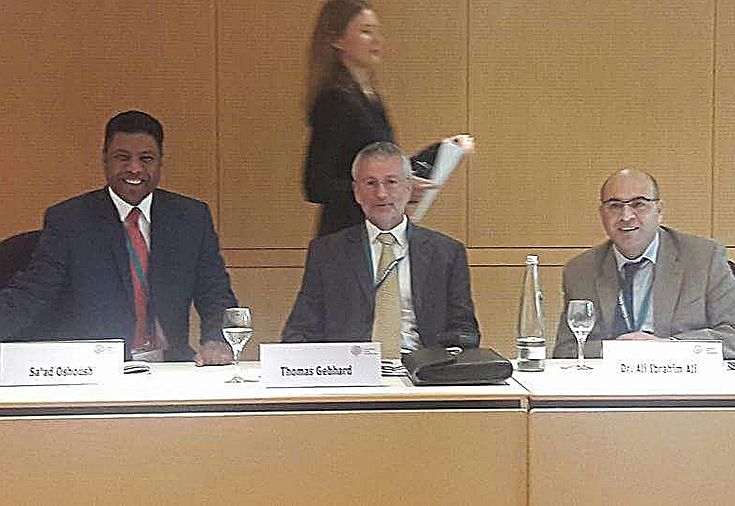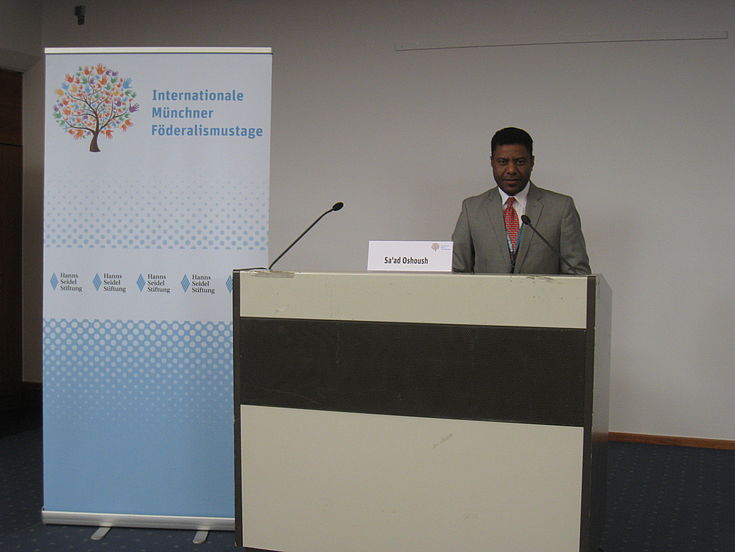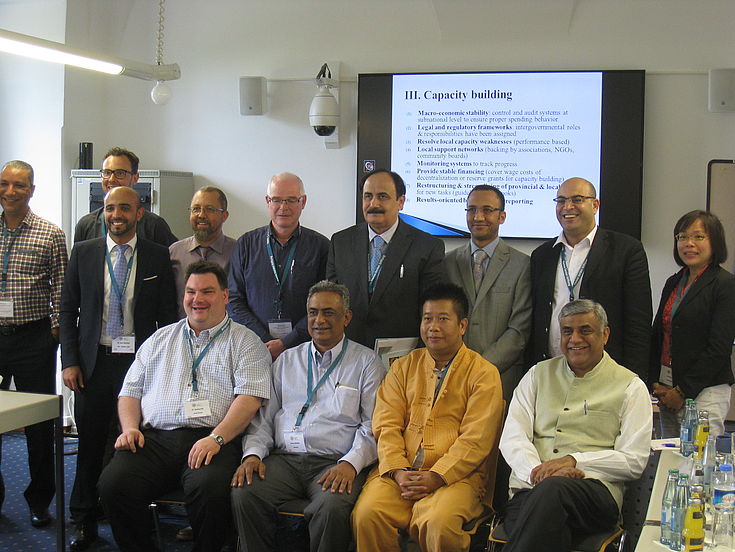What's happening at HSS?
Jordanian presence at the 'International Munich Federalism Days 2017' from 15 - 18 May 2017
In more and more countries federalism is being discussed as a model for reform. Under various preconditions, expectations are being addressed towards federalism worldwide. The ability of federalism to integrate diverging interests, autonomy movements, and territorial conflicts peacefully is emphasized. It is, however, apparent, that peace and development with or by federalism are not guaranteed.
During the 'International Munich Federalism Days' the Hanns-Seidel-Stiftung brings together its worldwide network and organizes a regular global exchange for politicians, governmental and administrative staff, and scholars. The aim is to provide a practical and solution-oriented contribution to the implementation of decentralized structures in order to contribute to democracy, peace and development.
The Federalism Days 2017, which were organized by the Hanns-Seidel-Stiftung Munich and eurac research, in general served to discuss on how federations and federal-alike forms of government such as regional, decentralised or devolved states work in praxis, and to what extend and how federalism and federally organized states contribute to conflict management and resolution.
The goal of the Federalism Days 2017 was threefold. First, they contributed to the examination and dissemination of how conflicts have been managed and resolved in federal and federal-alike systems. Second, they provided comparative analyses on how mechanisms and procedures in cooperation and coordination of governmental levels and between governmental levels and the different actors are working. Third, they provided a networking and discussion platform where all participants were invited to put forward ideas on how conflicts can be better dealt with.
Mr. Sa'ad Oshoush, Mr. Thomas Gebhard, HSS Amman and Dr. Ali Khawaldeh
With its multidisciplinary approach, the Federalism Days 2017 aimed to advance a dialogue between scholars and practitioners on the effectiveness of federalism as a tool to solve conflicts. Scholars in law, politics and economics provided contributions to the analysis of current trends and dynamics in constitutional design, power-sharing arrangements and litigation mechanisms, as well as of the interplay between federalism and conflict management. Particular attention was drawn to intergovernmental relations, the distribution of competences as well as fiscal arrangements and financial relations.
In many projects, the Hanns-Seidel-Stiftung works together with its partner organization to promote decentralization and federalism. Successful implementation opens up new possibilities for democratic participation and the rule of law, additional levels of independent design and reciprocity. Reforms in the area of decentralization are aimed at making the state more transparent, efficient and citizen-oriented at all levels. They are highly political processes because they can lead to a redistribution of power, competencies and resources.
In Jordan the "Ministry for Political and Parliamentary Affairs - MoPPA" is responsible for raising awareness for the new 2015 Decentralisation Law and Municipality Law and for informing the population with the aim of winning them for participation in the elections. The Hanns Seidel Stiftung Amman in cooperation with the "Arab World Center for Democratic Development - UniHRD" supports the work of the Ministry (see previous articles).
Dr. Ali Khawaldeh, Political Adviser of the Minister of Political and Parliamentary Affairs, and Mr. Sa'ad Oshoush, Speaker of the Independent Election Commission, took part in the conference on "Federalism and Conflict Management" in Munich and in Kloster Banz. It has given them the opportunity to present the efforts of Jordan in the process of decentralization to participants from all over the world.
Jordan's political and administrative system is characterised by a high degree of centralisation. The national planning as well as the development process has been directed by the central government which resulted among other reasons to large regional economic and social disparities in the country.
The new Decentralization Law and the Municipality Law are key cornerstones of the reform process pursued by King Abdullah II since 2011 in Jordan. The government has undertaken important steps towards promoting a more bottom-up approach. On the basis of the adopted laws, elections will be held at the level of the governorates and municipalities on August 15, 2017. Within the framework of the regional and municipal elections a new decision-making process will be introduced which will have decision-making powers on local levels and from 2018 onwards also financial funds. But the further development is still open in parts and details still have to be discussed to identify the best that fits future development plans.

